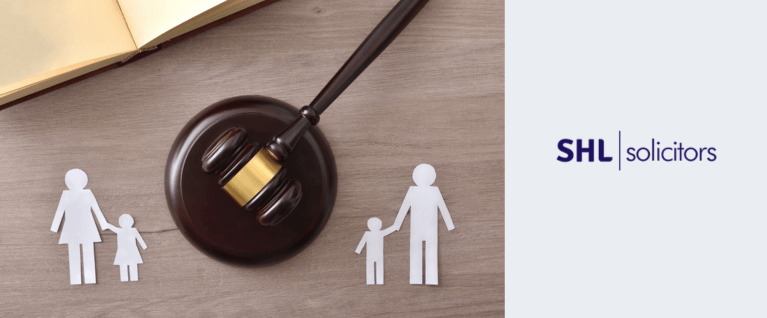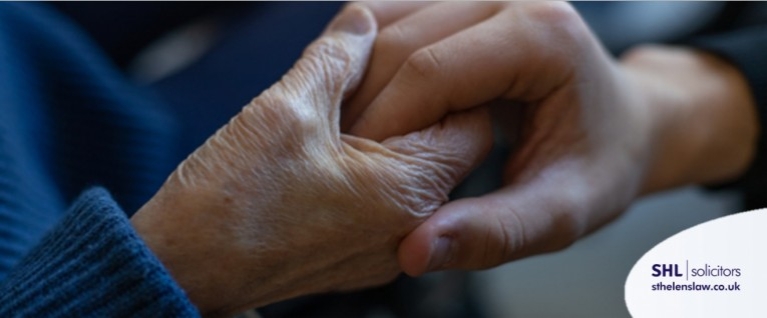Litigation friend aka, a crucial legal ally.
Navigating the legal system can be daunting (and confusing) for most people, let alone for those deemed unable to manage it on their own. This could be a child under the age of 18 or an adult with health issues that make it impossible for them to represent themselves.
If faced with a complex court case, such individuals are likely to need a helping hand. Someone on their side, who is willing to step in and direct legal proceedings on their behalf – acting as a voice and advocate throughout the process and making decisions in their best interests.
It’s a big role with significant responsibilities. So if you’ve been asked to be a litigation friend, or you think this may be something that’s needed for a friend or relative, it’s important to understand exactly what’s involved before you agree.
At St Helens Law, our specialist team of dispute resolution solicitors have many years of experience in appointing and working alongside a ‘litigation friend’ – for a wide range of civil and family court cases. Here’s everything we think you need to know.
The definition of a litigation friend
Essentially, a litigation friend is an individual who takes on the responsibility of representing someone else – known as the ‘protected party’ – in a court case. This protected party could be:
- a child under the age of 18
as children are not allowed to use a solicitor, by law, they require a litigation friend for any court proceedings (unless the court grants special permission otherwise).
- an adult lacking appropriate mental capacity
this can be due to a variety of reasons, such as learning difficulties, physical illnesses, mental illness or as a direct result of an accident or injury (e.g. a brain injury).
Either way, the main purpose of a litigation friend is to look after their best interests – making carefully considered decisions on their behalf and ensuring their rights are always protected.
Who can be a litigation friend?
In theory, anyone over the age of 18 can become a litigation friend, providing they can fulfil the role fairly and competently, make sound decisions and have the individual’s best interests at heart – without any obvious conflicts of interest.
Some of the most common choices include:
- a parent, grandparent or legal guardian
This is particularly true for children, but can also apply to adults.
- a family member or close friend
Ideally, this would be someone with a good understanding of the individual’s needs and wishes.
- a professional advocate
For complex court cases, someone with specialist expertise – such as a solicitor or Independent Mental Capacity Advocate (IMCA) – may be appointed.
- the individual’s appointed lasting power of attorney
i.e. the person who has already been legally appointed to help the individual make important decisions or make decisions on their behalf.
Ultimately, the court has the final decision on who is chosen.
In most cases, for children, a parent or guardian is appointed automatically, unless they’re deemed unsuitable. For adults lacking mental capacity, the suitability of a proposed candidate is carefully assessed – before being formally appointed by the court.
What are the responsibilities of a litigation friend?
Litigation friends play a vital role in ensuring fair and effective legal representation for those who need it the most. Essentially, you will be required to ‘direct the proceedings’ on behalf of the protected party and some of the main duties include:
- understanding the legal process involved in the case, and acting responsibly and ethically, to ensure that proceedings can progress smoothly and efficiently.
- gathering evidence and information relevant to the case.
- making important legal decisions in the best interests of the protected party.
- communicating with the protected party, keeping them informed about the case, finding out their wishes and views and ensuring these are heard (as much as possible).
- liaising with their solicitor regularly, obtaining expert advice wherever appropriate and instructing them to act in the best interests of the protected party.
- attending any necessary court hearings and actively participating in proceedings.
- signing legal documents and dealing with legal correspondence.
- carefully considering and agreeing to any settlement offers made.
- paying any costs ordered by the court.
The role usually ends after the court case (unless money is awarded, and this goes into a CFO account). However, it’s important to keep in mind, court cases can be a stressful and emotional experience for anyone involved – including both litigation friends and the people they represent.
Plus, they can sometimes take several years to resolve.
It’s a big responsibility. Which is why, before agreeing to anything, it’s important to carefully consider whether you’re ready and willing to commit to such a big role. And remember, if you don’t feel like you’re up to it, there’s absolutely no pressure or judgement. An official solicitor can simply represent your loved one throughout the court case instead.
How do you become a litigation friend?
There are two ways in which you could become a litigation friend.
You may be directly appointed by the court or by the request of another individual involved in the case. Or you can apply to be someone’s litigation friend voluntarily. To do so, you would need to:
- Fill in a certificate of suitability, explaining why you are appropriate for the role.
- If you’re applying to act for a child, send a copy of this certificate to their parent, guardian or carer. If you’d like to act on behalf of an adult, send a copy of this certificate to their legal deputy, solicitor, carer or the protected party themselves.
- Fill in a certificate of service, confirming that you’ve completed the first two steps.
- Send both certificates to the court.
If you’re already acting as the protected party’s deputy, this permits you to act as their litigation friend, without having to follow the steps above. Instead, you’ll only have to provide a copy of the court order that appointed you as their deputy.
Detailed information on this process can be found on the gov.uk website.

Need further advice on becoming a litigation friend?
Here at St Helens Law, our dispute resolution solicitors have worked on a wide range of civil and family court cases that have involved children and adults lacking mental capacity – offering professional guidance and friendly support for the litigation friend appointed.
Thanks to our knowledge and insight in this sensitive area of the law, we can assist with everything – from filling out the relevant forms and applying to the court, to providing independent legal advice on how to act in the protected party’s best interests.
If you know someone who may need help with their court case – and are considering becoming their litigation friend – please don’t hesitate to get in touch. An initial consultation is available completely free of charge, in which we can answer any further questions you may have and outline the type of support and assistance our team can offer.
To book a time and date that works for you, just give us a call on 01744 742360. Alternatively, fill out the form on this page and we’ll respond to your enquiry as soon as possible.


